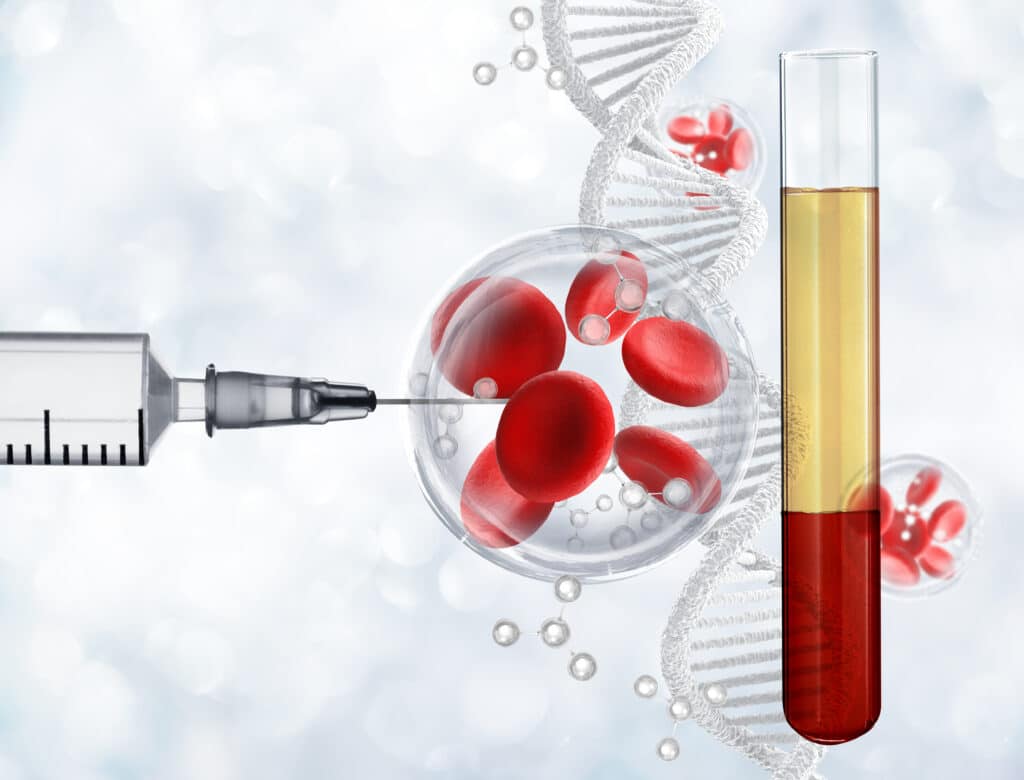Stem cell is an undifferentiated cell which is capable of giving rise to many cell types. Receiving stem cells boost the damaged cell repairing process throughout your whole body. It can also be injected locally to intensify repairing of the injection site. Furthermore, stem cells reduce inflammation by secreting substances to alleviate inflammation related diseases.
Stem cell therapy is a form of regenerative medicine designed to repair damaged cells within the body by reducing inflammation and modulating the immune system. This phenomenon makes stem cell therapy a viable treatment option for various medical conditions. Stem cell therapies have been used to treat autoimmune, inflammatory, neurological, orthopedic conditions, and traumatic injuries, with studies conducted on use for Crohn’s disease, Multiple Sclerosis, Lupus, COPD, Parkinson’s, ALS, Stroke recovery, and more.
While new stem cell therapies don’t necessarily cure these conditions, the premise is to allow the body to heal itself well enough to mitigate the symptoms of the requirements for long periods. In many cases, this effect can substantially increase the quality of life for patients as well as delay disease progression.

Stem cell IV therapy is a form of regenerative medicine designed to repair damaged cells within the body by reducing inflammation and modulating the immune system. It can be used to treat a variety of medical conditions, such as autoimmune, inflammatory, and neurological disorders.
Several types of stem cell treatments are available, including amniotic fluid stem cell treatment and umbilical cord-derived stem cell treatment. The most common FDA-approved stem cell-based therapy is hematopoietic stem cell transplantation, which treats blood cancers like leukemia. Stem cells can also be regenerative therapy for severe skin burns and seriously damaged corneas.
Stem cell therapy, a type of regenerative medicine, utilizes stem cells or their derivatives to stimulate the body’s own healing processes and repair damaged, diseased or injured tissue. This approach represents a promising new frontier in the field of transplantation, as it harnesses the power of cells rather than relying on limited supplies of donor organs.
Stem cells, characterized by their self-renewal capacity and ability to differentiate into various cell types, hold immense potential in the field of regenerative medicine and medical research. Applications of stem cells can be broadly categorized into the following areas:
Mesenchymal stem cells (MSCs) are a type of adult stem cell in many body tissues, including bone marrow, fat tissue, and muscle. MSCs can differentiate into bone, cartilage, and fat cells.
MSCs have shown promise as a regenerative therapy for various diseases and conditions. In preclinical and clinical studies, MSCs have been shown to have anti-inflammatory and immune-modulatory effects invoking a positive immune response. They have been used to treat human diseases, including autoimmune diseases, degenerative neurological conditions, spinal cord injuries, joint pain, and other diseases affecting the human condition.
One of the key benefits of using MSCs for stem cell therapy is that they can be easily obtained from various sources and expanded in the laboratory. MSCs also have a low risk of immune rejection, as they are less immunogenic than other stem cells.
Overall, using MSCs for stem cell therapy holds great promise for treating various diseases and conditions. While more research is needed to fully understand these cells’ potential and develop safe and effective treatments using MSCs, early results are encouraging. MSCs have the potential to be a valuable tool in the field of regenerative medicine.
Regenerative medicine is a multidisciplinary field involving replacing, repairing, or regenerating impaired body organs, tissues, and cells. It is a cell-based therapy that consists of the injection of stem or progenitor cells and the induction of generation by biologically active molecules. The goal of the transplanted cells is to mitigate the effects of human disease by reducing symptoms and stabilizing a medical condition.
Each adult body cell has regenerative properties which can be reprogrammed to repair or replace tissue or organ function lost due to age, disease, damage, or genetic effects.
Regenerative medicine has the potential to revolutionize how we treat disease, and treatments are being performed right now that utilize these principles. These treatments involve using the body’s natural ability to heal itself in many ways, such as repairing cuts in the skin and mending broken bones.
Stem cells can be administered in a variety of fashions; IV Stem Cell Therapy (intravenous administration), Intrathecal (directly into the spinal canal), stem cell injections into problem areas (knee, hips, hands, etc.). Stem cell research has found that the method of administration can have different effects on a patient and should be thoroughly considered prior to selecting a route.
Stem cell injections, a form of regenerative medicine, utilize the unique properties of stem cells to repair damaged or diseased tissues in the body. These injections have been successfully applied in the treatment of various medical conditions, including autoimmune, inflammatory, and neurological disorders.
The potential of stem cell therapy lies in its ability to harness the regenerative capabilities of stem cells, reducing inflammation and modulating the immune system, which may ultimately enhance the patient’s quality of life and slow disease progression. While research continues to explore the full potential of stem cell injections, early clinical results indicate a promising future for this innovative treatment option in the field of regenerative medicine.